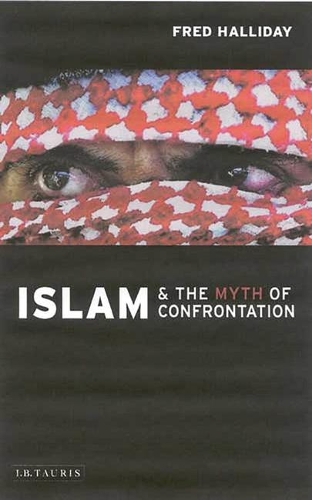
Islam and the Myth of Confrontation: Religion and Politics in the Middle East
(Paperback, Revised edition)
Publishing Details
Islam and the Myth of Confrontation: Religion and Politics in the Middle East
By (Author) Fred Halliday
Bloomsbury Publishing PLC
I.B. Tauris
24th July 2003
Revised edition
United Kingdom
Classifications
Tertiary Education
Non Fiction
Political ideologies and movements
Social groups: religious groups and communities
320.550956
Physical Properties
Paperback
272
Width 138mm, Height 216mm
Description
This volume sets out to reject anti-Islamic views of a future dominated by the conflict between "Islam" and "the West". It has been revised to encompass the events of 11 September 2001, spiralling violence in the Middle East and President George Bush's proposed identification of an "axis of evil". Considering the sources of Islamic militancy and analyzing the confrontational rhetoric of both Islamic and anti-Muslim demagogues, Halliday provides an alternative, critical, but cautious, reassessment. The Middle East, he argues, can be treated neither as a distinct nor as a unified region, but must be seen as a set of disparate societies, facing and reacting to the problems of economic development and political change.
Reviews
'The first balanced and sober analysis of the new anti-Islamic tendency... In a detailed and rational exposition of the evidence, Halliday emphasizes the extraordinary diversity of the Islamic world. A brave and important book.' - The Observer Listed as one of The Guardian's top 10 Middle East Books, 6 April 2002 'Fred Halliday's Islam and the Myth of Confrontation should be welcomed by both specialists and non-specialists alike... I would highly recommend the book for undergraduates... it offers many opportunities for spirited debate and alternative constructions of the complexities of the region...a successful and useful contribution to the scholarly literature.' -John Curry, Digest of Middle East Studies
Author Bio
Fred Halliday is Professor of International Relations at the LSE, author of many books, including Two Hours that Shook the World.
